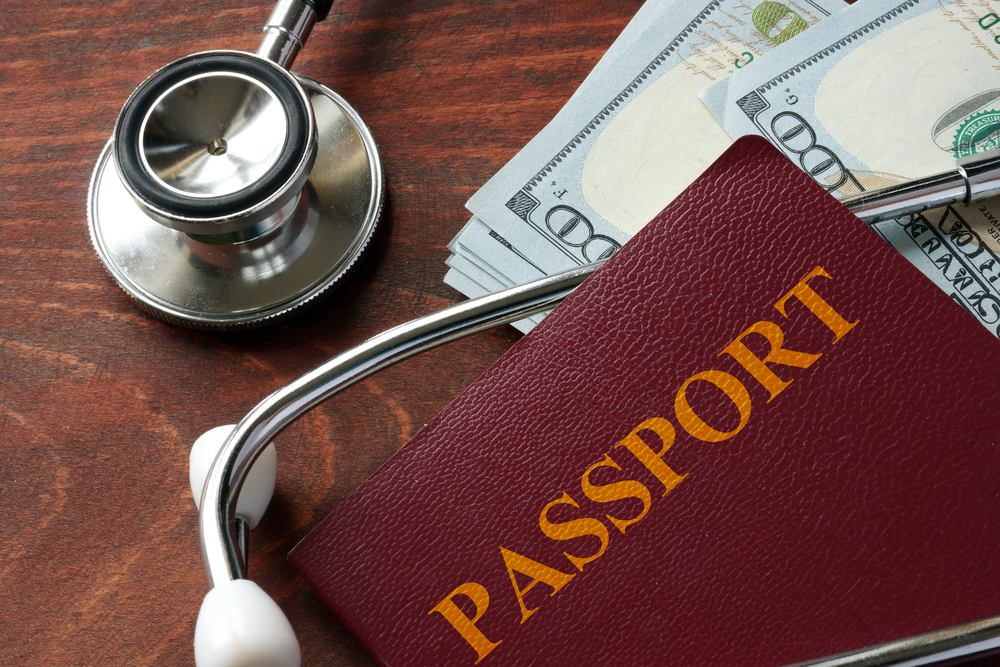People with Medicare are covered for travel within the U.S. along with Puerto Rico, the U.S. Virgin Islands, Guam, American Samoa, and the Northern Mariana Islands. You may be covered for some Medicare Part B services that you get on board a ship if you are within the territorial waters surrounding the U.S.
Medicare Part D prescription drug programs will not cover prescriptions you fill outside of the U.S.
When Medicare Covers Travel
Medicare will only cover travel outside of the U.S. if certain conditions are met.
Medicare will cover you if you have a medical emergency while you are in the U.S. but the nearest facility that can treat you is a foreign hospital.
Medicare also covers you if you are in Canada en route from Alaska to the mainland U.S. when you have a medical emergency, and the Canadian hospital is the closest that can treat you properly.
You will be covered when you live in the U.S. but the nearest foreign hospital is closer than any U.S. hospital.
Your Costs Under Medicare
Your costs for covered services under Medicare are standardized. Medicare will pay for your services in the foreign hospital as they would for a facility in the U.S.
Medicare Part A costs include a deductible for each benefit period (which is the time between being admitted as an inpatient and not having received inpatient care for 60 days), a daily coinsurance for inpatient care, and your monthly premiums. Many people pay nothing in Medicare Part A premiums: this is referred to as premium-free Part A. You may qualify for premium-free Part A based on how many calendar quarters you worked and paid taxes to Social Security. You may also qualify if you have received disability benefits from Social Security or the Railroad Retirement Board for at least 24 months or if you are already receiving retirement benefits before you turn 65.
Medicare Part B costs cover medically necessary and preventative care services, which you would think of as outpatient care. These expenses include your yearly deductible, 20% copayments, coinsurance, and your monthly premium.
Filing Medicare Claims for Foreign Care
The foreign hospital you are treated at is not required to file a claim to Medicare. You have to do that yourself by submitting an itemized bill. The bill should include all doctor, hospital inpatient, and ambulance services you received.
To do this, you need to fill out the Patient Request for Medical Payment Form(CMS-1490S). Along with this form, you will need to submit the itemized bill, a letter explaining your reason for submitting the claim (i.e. that the foreign hospital would not), and any supporting documents.
Medicare Supplement Plan Coverage
There are six Medicare Supplement plans that can cover 80% of foreign travel emergency care. These are plans C, D, F, G, M, and N.
Medicare Supplement plans help to pay for the out-of-pocket expenses from Medicare Part A and Part B. The expenses that can be covered by these plans include:
- Part A coinsurance and hospital costs
- Part B copays and coinsurance
- Your first three pints of blood
- Part A hospice care
- Skilled nursing facility care
- Part A deductible
- Part B deductible (Plans C and F)
- Part B excess charges
- 80% foreign travel emergency care
The different plans have varying coverage for these expenses, which impacts their pricing. To choose a Medicare Supplement plan, think about which healthcare expenses you can anticipate and select the coverage that fits into your budget.
To enroll in a Medicare Supplement plan, you must be enrolled in Medicare Part A and Part B. When you are 65 and first enrolled in Medicare Part B, you have six months to sign up for a Medicare Supplement plan. This is called your Medicare Supplement (Medigap) Open Enrollment Period. During these six months, you have the opportunity to sign up for a Medicare Supplement plan without having to go through medical underwriting. An insurance company can not prevent you from purchasing a Medicare Supplement plan on account of your health.
You may be able to purchase one of these plans if you are younger than 65 and qualify for Medicare due to a disability. Insurance companies are not required by federal law to sell these plans to people under 65, and can charge higher premiums if they do. Your state may have regulations that allow you to purchase specific Medicare Supplements.
Consult a Medicare expert if you are interested in purchasing a Medicare Supplement plan. Our team at Healthcare Solutions Direct can match you with a Medicare Supplement plan that covers 80% of your foreign travel emergency care expenses and meets your needs for other healthcare expenses while staying within your budget.
Travel Within the U.S.
Are you a frequent traveler within the country? You may want to look into a Medicare Advantage plan.
Medicare Advantage plans, specifically PPO plans, are a great solution for anyone looking for coverage beyond their service area. These plans are an alternative to Original Medicare and can provide additional coverage for things like dental, hearing, and vision care or bonus benefits including fitness club memberships.
Medicare Advantage plans have the same coverage as Part A and Part B but are offered by private health insurance companies that have been approved by Medicare to handle your coverage. Most Medicare Advantage plans contract with networks of healthcare providers to bring you more affordable rates.
Preferred Provider Organization (PPO) plans are a flexible type of Medicare Advantage plan. Under a PPO, you do not have to have a primary care provider or receive a referral to see a specialist. You also have coverage for providers outside of the plan’s network, although you may have to pay more for services received from outside providers. This flexibility allows you to travel worry-free within the country.
Do you want to sign up for a Medicare Advantage plan? To sign up for one, you must be enrolled in both Medicare Part A and Part B and live within the plan’s service area.
Contact a Medicare expert from Healthcare Solutions Direct for assistance in choosing a Medicare Advantage plan that fits your needs.



